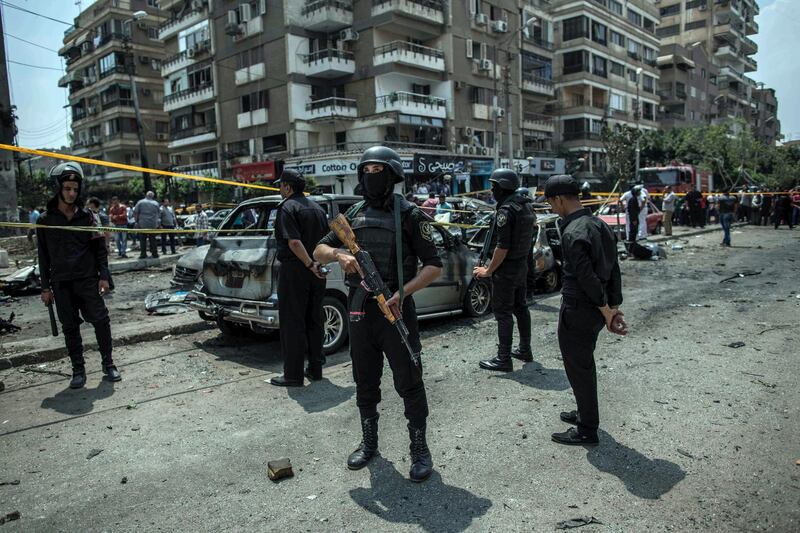Speaking to judges at the funeral of Egypt’s top prosecutor, killed by extremists a day earlier in June 2015, a visibly angry President Abdel Fatah El Sisi demanded that something must be quickly done to overhaul the country’s laws and courts so that verdicts could be swiftly issued in terror-related cases.
“To me, the attorney general is the voice of Egypt. Those who killed him yesterday are silencing Egypt,” said the general-turned-president to approving words by some of the judges gathered around him.
Mr El Sisi had to wait nearly four years to see the justice he wanted served.
Authorities on Wednesday hanged nine people convicted of involvement in the killing of Hisham Barakat, the most senior Egyptian official to be assassinated since 1990, when parliament speaker Rifaat El Mahgoub was gunned down by militants in Cairo during a decade-long insurgency by religious radicals that left more than 1,000 people dead.
Barakat was also the most senior official since the military, then led by Sisi, ousted in 2013 Mohammed Morsi, an Islamist president whose one year in office proved divisive.
Read More
[ Munich Security Summit: Sisi calls for action over online extremism ]
[ Cairo bomb: Home-made device explodes wounding three ]
[ Tourist bus attack hits Egypt at a critical time ]
The nine were hanged in the “appeals prison” in central Cairo at 6 am Cairo time. Their bodies were later taken to Cairo’s main morgue for families to collect and bury.
Wednesday’s hangings followed a November ruling by Egypt’s highest appeals court to uphold the death sentences. Six other death sentences issued in the same case were commuted to life in prison.
The hangings took to 15 the number of people executed in terror-related cases so far this year. Three were hanged earlier this month for their part in the 2014 killing of a judge’s son, while another three were executed for killing a police officer a year earlier.
On the eve of the executions, Amnesty International urged Egypt not to go ahead with the hangings, arguing that some of the defendants in the case claimed to have been forcibly disappeared and confessed under torture.
“There is no doubt that those involved in deadly attacks must be prosecuted and held accountable for their actions, but executing prisoners or convicting people based on confessions extracted through torture is not justice,” said Amnesty’s Najia Bounaim.
An armed faction of Morsi’s Muslim Brotherhood, a now-outlawed group, is widely believed to have been behind the bombing that killed Barakat. Authorities have since Morsi’s ouster waged a large-scale crackdown that landed the group’s leaders along with thousands of its supporters in jail. Harsh sentences have been handed to many of them, including mass death sentences decried by rights groups.
Egypt is also fighting a long-running insurgency by militants that’s centered in the Sinai Peninsula and led by the extremist ISIS group.






